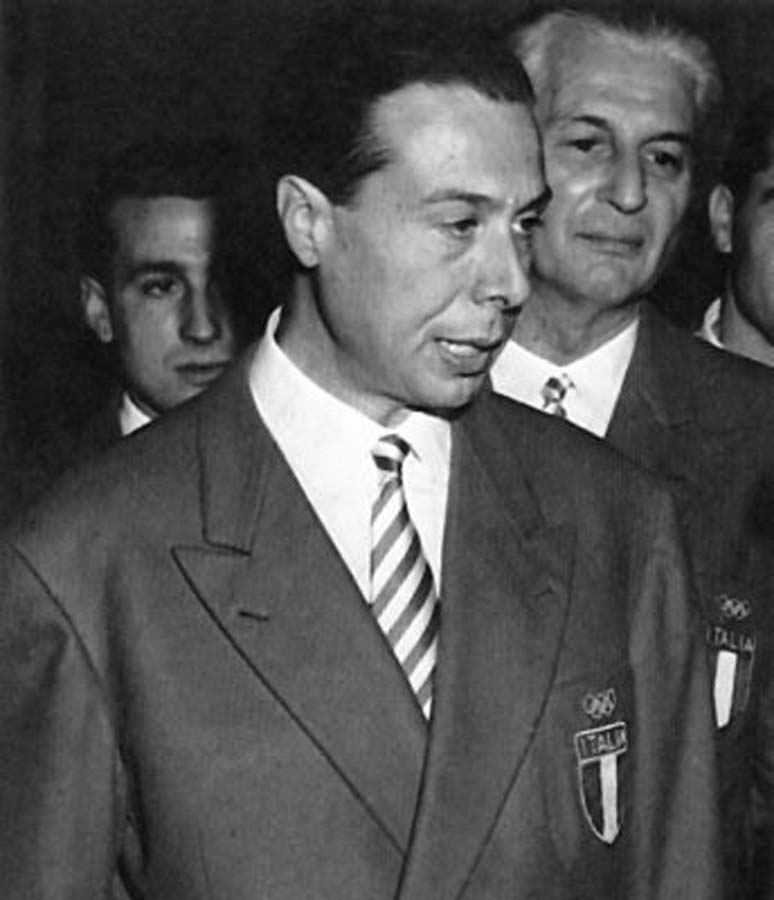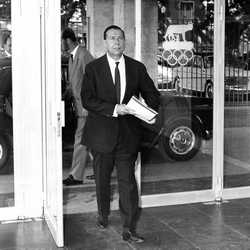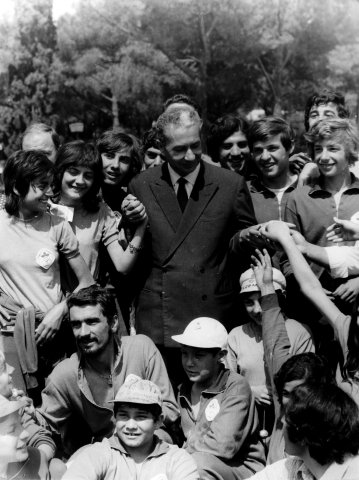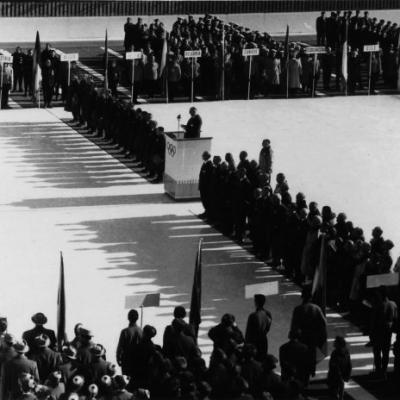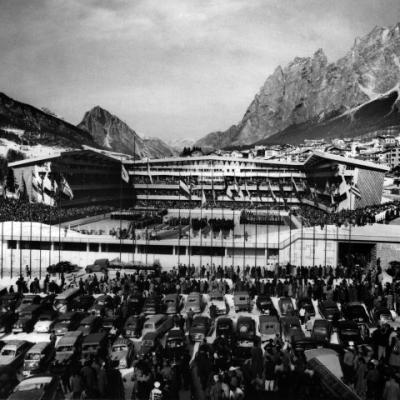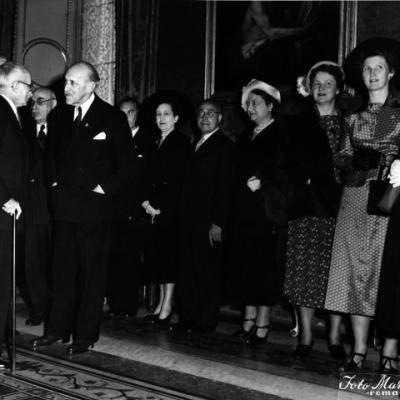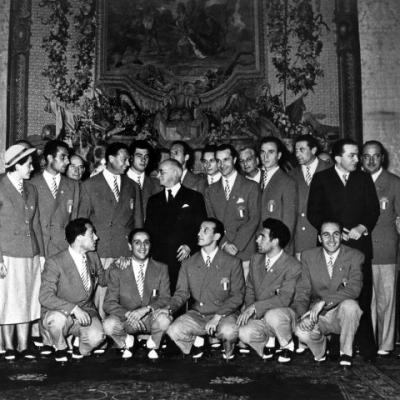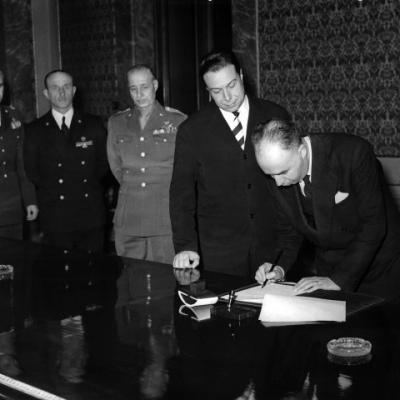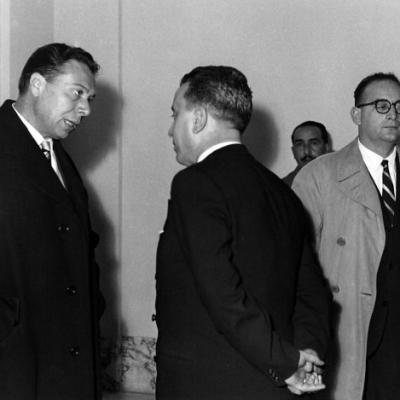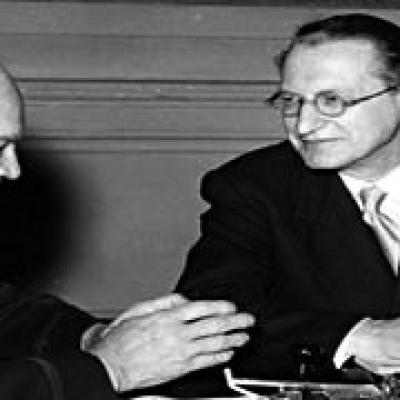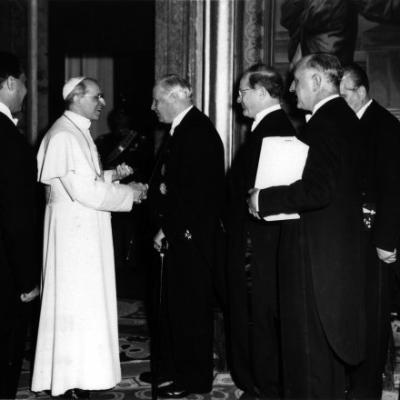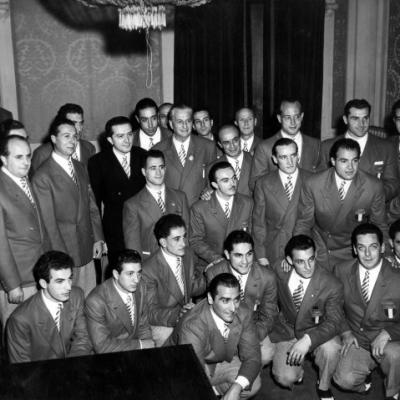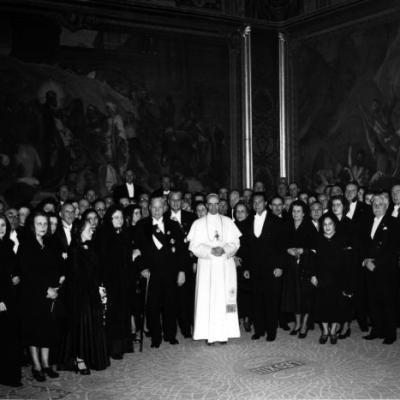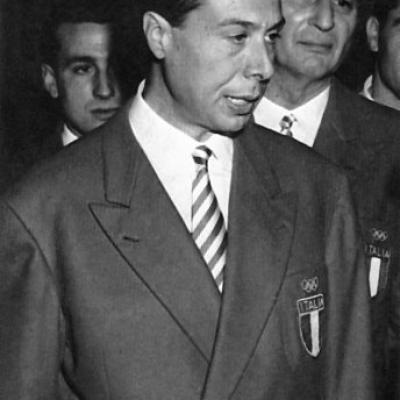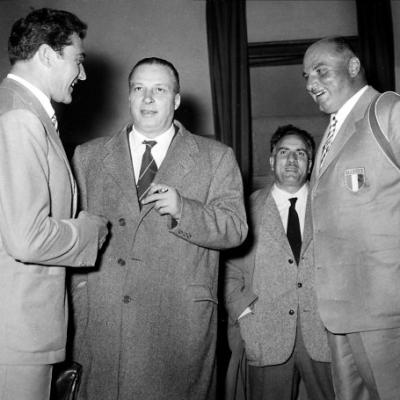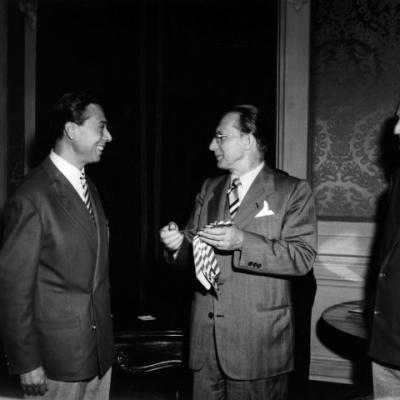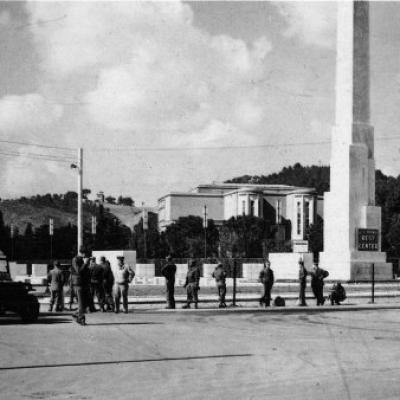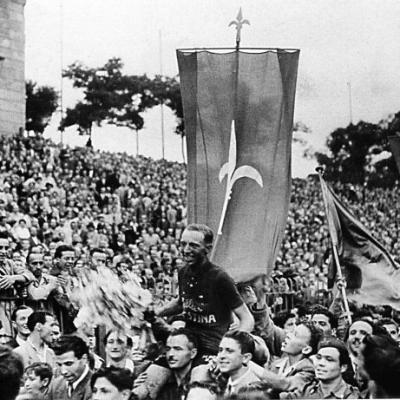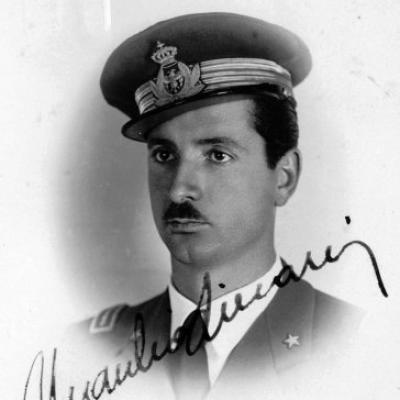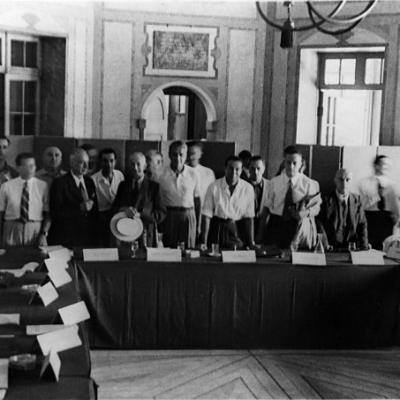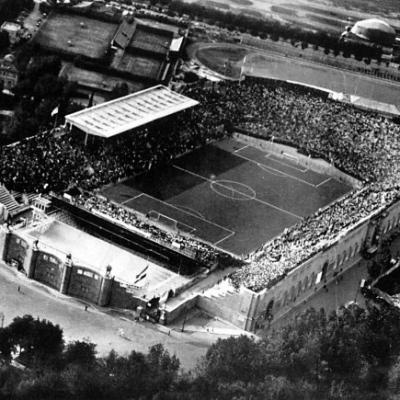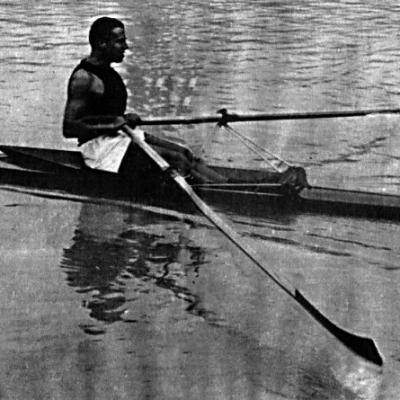Biography
Giulio Onesti
1912
Giulio Onesti was born in Turin on 4 January 1912. At a very young age, he moved to Rome to attend university: he graduated in law, specializing in canon law. For a few years, he practiced as a lawyer. During the Second World War, he fought on the Yugoslav front and was also wounded.
1912
1943
After 8 September 1943, Onesti carried out partisan activity with the socialist party.
1944
In 1944 he was appointed by the Government as Special Commissioner of the Italian National Olympic Committee (CONI), in order to verify whether or not to liquidate the institution, considered by many an organism of clear fascist imprint. Despite the very difficult times, lawyer Onesti manages in two years to create the conditions for the CONI to survive, creating a democratic structure and laying concrete and solid foundations for its rebirth: the CONI becomes the vital pivot for the development of sport in the country, and also within the framework of the International Olympic Committee.
1944
1945
Following the abolition of all State contributions to the CONI, on 19 November 1945 Onesti requested that the CONI be authorized to carry out totalizers, betting and prediction contests. Having received the authorization from the Ministry of the Interior on 4 January 1946, on the 19th of the same month he decided to entrust SISAL with the management of the prediction contests on sports events, which would then begin on 5 May 1946.
1946
On 19 and 20 June 1946, the National Council of the CONI met in Rome for the first time and in its following meeting, on 27 July 1946 in Milan, Giulio Onesti resigned as Special Commissioner and was appointed President of the CONI.
1946
1947
On 11 May 1947, the legislative decree amending the law establishing the institution was promulgated and on 10 August 1947, the National Council unanimously approved the appointment of Giulio Onesti as President of the CONI. He remained in charge until 1978, when, following a sentence of the Regional Administrative Court of Lazio, confirmed by the Council of State, declaring his ineligibility on the basis of an article of the new law on the parastate, he is forced to resign.
In the thirty years of presidency, Giulio Onesti, in addition to having guaranteed the economic autonomy of sport with the introduction of the Totocalcio prediction competition, which passed into the direct management of the CONI in 1948, promoted a series of initiatives that brought Italy to the top of world sport. The Italian team took part in the 1948 Winter Olympic Games in Saint Moritz and in the Olympic Games in London: from that moment on, Italy will not miss any edition of the Olympic Games. In 1949 he founded the “Rivista di diritto sportivo ("Sports Law Review"). Under his presidency, Italy was chosen by the International Olympic Committee to organize the Winter Olympic Games in Cortina d'Ampezzo in 1956 and the unforgettable Olympic Games in Rome in 1960.
1964
In 1964 Onesti was elected a member of the IOC: he carried out intense political and sporting activity all over the world and was unanimously elected President of the General Assembly of the National Olympic Committees which he founded. He was appointed by the IOC as coordinator of the "Olympic Solidarity" program for developing countries and implemented multiple initiatives in various sectors. He implemented a policy of technical exchanges with the Olympic Committees of various countries and a vast program in favor of Italian communities abroad. In 1972 he was the first member of the IOC to travel to China and start the diplomatic work that would bring the great Asian country back into the Olympic assembly.
1964
1965
On a national level, in 1965 Onesti obtained from the Parliament the approval of the so-called "50-50 law" for the distribution of the revenues of the Totocalcio between the CONI and the State. He supported sports in school and sports in the military. Once again the Parliament supported his activity by approving the law establishing the Istituto per il Credito Sportivo (Institute for Sports Credit). In 1966 he published the "White Book on Sport" hoping for the creation of "sport for all"; he reaffirmed the concept with "The Green Book of Sport" (1971), "Sport and the Region" (1974) and "The Blue Book of Sport" (1975), indicating the concrete actions that the State and the Regions must implement to spread the sports at all levels and for all ages.
1968
In 1968 he launched the Youth Games to raise public awareness and bring young people closer to the sport. He founded the Institute of Sports Medicine, the School of Sports and the Olympic Training Centers for various disciplines. He implemented a vast policy of direct intervention by the CONI for the construction of sports facilities of all kinds. He established Sport Initiation Centers for the children, schools of initiation to the sport with a prototype character, destined to proliferate in the country and to be imitated.
1968
1975
In 1975 he organized the VII Assembly of the Olympic Committees in Rome with the participation of over 100 countries and was unanimously re-elected as head of the organization, which he will lead until 1979; he will be appointed founding president and honorary lifetime president of the Association of National Olympic Committees.
1976
1976
1981
Many of his intuitions, both nationally and internationally, have contributed in a decisive way not only to the development of Italian sport, but to the diffusion and growth of sporting activity in the world.
Contacts
Villa Giulio Onesti
Pallacanestro Street, 19
00135 - Rome
-
dummy+39 06 36857933
-
dummy+39 06 36857934
-
dummy info@fondazionegiulioonesti.it



